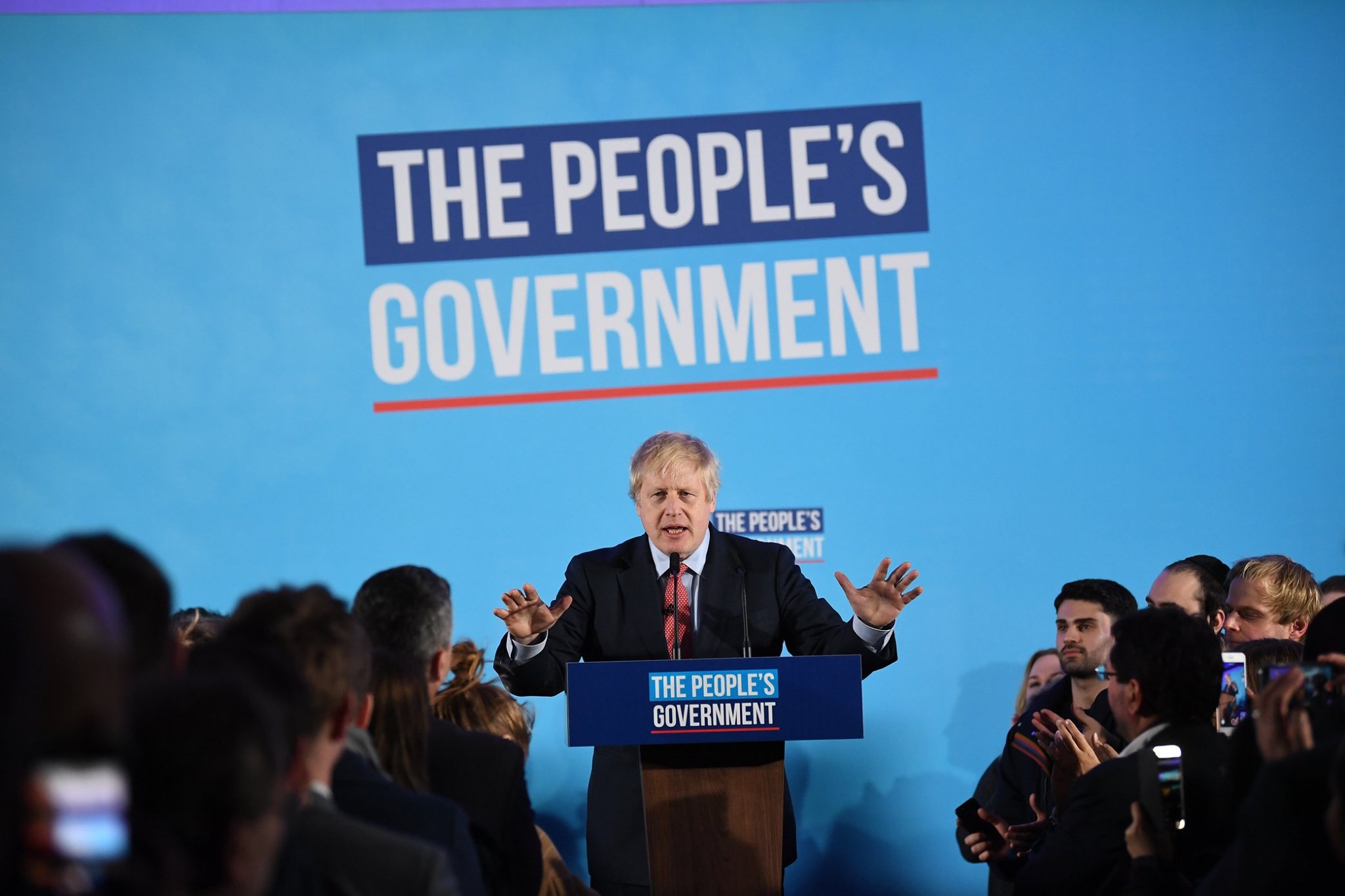Departure from EU just phase 1 of Brexit for UK
Holding a majority of 80-seat in the House of Commons, British Prime Minister Boris Johnson is set to win the sprint to leave the European Union (EU) on Jan. 31. However, any “leaving party” champagne celebrations will be short-lived as that “victory” is just phase one of a longer race — reaching a trade deal with the EU by the end of 2020.
Ivan Rogers, who served as Britain’s permanent representative to the EU, said the country’s departure from the bloc will be just the starting point in a rocky and uncertain journey that may continue for years.
Rather than having everything “boxed off” by the end of January, Rogers, speaking to Xinhua in a recent interview, said the negotiations could almost certainly stretch into the second half of third decade of the 21st century.
Johnson has repeatedly insisted that he will not extend the 11-month transition period, by the end of which the talks with Brussels on future relations are supposed to be concluded.
When Britain leaves the bloc at the end of January, the transition period will then begin and its trading relationship with the EU will remain the same. It will continue to follow the EU’s rules and contribute to its budget.
In an end-of-year interview with the French newspaper Les Echos, President of the European Commission Ursula von der Leyen said both sides needed to think seriously about whether the 2020 deadline was enough to reach an agreement.
Admitting that she was very worried about how little time was available, the president said: “It would be reasonable to evaluate the situation mid-year and then, if necessary, agree on extending the transition period.”
If a trade deal is not agreed by December 2020, without agreed extension, it would leave Britain trading on World Trade Organization terms with the EU, with the likelihood of tariffs on imports and exports.
Thomas Raines, head of Europe Program at the think-tank Chatham House, said the first order of business for Britain is to pass the withdrawal agreement.
“Then, the question becomes about the level of ambition … It is an exceptionally ambitious timetable to negotiate, ratify and implement a new relationship before the end of the transition period in December 2020,” said Raines in a recent article published on the website of the think-tank.
Raines spells out three possible outcomes: a “no trade deal” outcome; a bare-bones agreement to end the transition period, but with an extended period not called “extension” for further negotiation; Johnson extends the transition.
“No option is ideal. The first is the most economically disruptive, the second means the EU will be in an even stronger position to dictate terms and the third means breaking a manifesto pledge,” said Raines.
Commenting on the possibility of ending the negotiation and ratifying the trade deal in 2020, Rogers said: “There’s an absolutely zero chance of this happening … We’ve already had three and a half years (since the 2016 EU referendum) and we haven’t yet started the difficult stuff.”
Citing the example of the trade deal between the EU and Canada, Rogers said: “It took about seven years to negotiate from beginning to end.”
There was also a cautionary note from Yael Selfin, chief economist at KPMG UK.
“Overall we think the fact that the transition period is likely to be only a year is going to leave quite a lot of uncertainty for businesses. The possibility of a cliff edge at the end of the year is quite high, which is not great news. It is not something we’re likely to see resolved early. It is likely to drag until much later,” Selfin told the Daily Telegraph.
Source: Xinhusa – LONDON
please make a donation here
Hot news
Drama: number of births in a 20-year low in Hungary
Yay or nay? – 6 odd Hungarian delicacies that make our skin crawl
Budapest tourism “exploded” this past weekend
Container transport in Budapest may stop: How will this affect Hungarian economy?
Minister: Hungary will protect its territory by every means possible
Orbán cabinet may double airspace fee: another ticket price increase?




